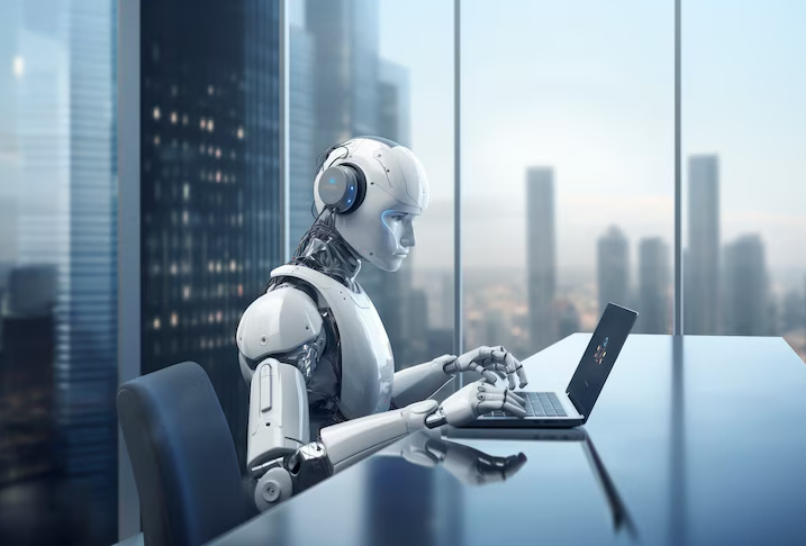The future of artificial intelligence is characterized by a complex interplay of possibilities and obstacles. Industries are likely to experience significant transformations, enhancing both efficiency and user experience. However, these advancements come with ethical dilemmas, such as data privacy and algorithmic bias. Moreover, the changing landscape of employment raises questions about workforce adaptation and job displacement. Understanding these dynamics is essential for navigating the implications of an AI-driven society. What strategies will emerge to address these pressing issues?
Transformative Potential of AI Across Industries
As industries increasingly integrate artificial intelligence (AI) into their operations, the transformative potential of this technology becomes evident.
Healthcare innovations enhance patient outcomes, while autonomous vehicles redefine transportation efficiency.
Personalized marketing leverages consumer data for targeted engagement, and smart manufacturing optimizes production processes.
Each application underscores AI’s capacity to revolutionize sectors, fostering greater autonomy and efficiency in decision-making and operational frameworks.
Ethical Considerations in AI Development
The rapid integration of AI into various sectors raises significant ethical considerations that demand attention.
Key issues include algorithmic bias, which can perpetuate discrimination, and the necessity for responsible innovation to ensure equitable outcomes.
Stakeholders must prioritize transparency and accountability in AI systems, fostering an environment where technological advancement aligns with ethical standards, thereby preserving individual freedoms while minimizing societal harm.
The Impact of AI on Employment and the Workforce
How will the rise of artificial intelligence reshape the landscape of employment and the workforce?
The integration of AI technologies may lead to significant job displacement, particularly in routine tasks.
However, this shift necessitates skill adaptation among workers, emphasizing the need for continuous learning and development.
The future workforce must embrace these changes to thrive in an evolving economic environment driven by technological advancements.
See also: The Future of AI in Enhancing Public Services
Ensuring Security and Privacy in an AI-Driven World
While AI technologies offer transformative potential across various sectors, they also introduce complex challenges related to security and privacy.
Effective data protection and stringent privacy regulations are essential to mitigate algorithm bias and surveillance concerns. Implementing robust cybersecurity measures and ensuring user consent is crucial for building trusted systems.
Moreover, ethical hacking can proactively address vulnerabilities, fostering a safer AI-driven environment.
Conclusion
As humanity strides boldly into the AI era, one can’t help but marvel at the paradox of our creation: machines that promise to enhance our lives while potentially outsmarting their creators. With ethical dilemmas and job displacement lurking like uninvited guests at a tech party, the need for transparency and security becomes alarmingly clear. Thus, the future of AI may resemble a thrilling rollercoaster—full of exhilarating highs and heart-stopping lows, leaving us all to wonder who’s really in control.











